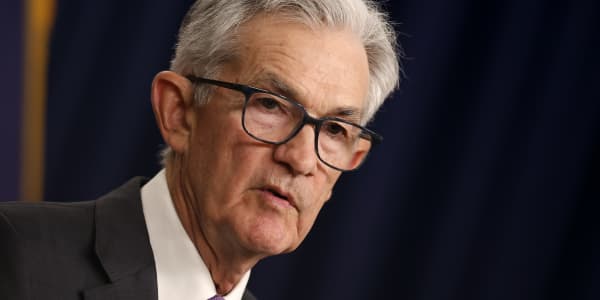This report is from today's CNBC Daily Open, our new, international markets newsletter. CNBC Daily Open brings investors up to speed on everything they need to know, no matter where they are. Like what you see? You can subscribe here.
What you need to know today
Streak shattered
The Dow Jones Industrial Average finally ran out of steam and closed the day in the red, ending its 13-day winning streak. Other major U.S. indexes had a losing day as well. Asia-Pacific markets traded mixed Friday. China's Shanghai Composite advanced 1.38%. Meanwhile, Japan's Nikkei 225 briefly fell 2% after the Bank of Japan's meeting, but recovered in afternoon trading.
'Greater flexibility' for the BoJ
The Bank of Japan pledged to "conduct yield curve control with greater flexibility," even as the bank said it would keep 10-year Japan government bonds within a range of "plus and minus 0.5 percentage points." The BOJ also kept its short-term interest rate target at -0.1%. The Japanese yen rose to around 138.68 to the U.S. dollar, while yields for the 10-year JGB hit their highest level since September 2014.
What recession?
The U.S. economy's showing no signs of stopping. Gross domestic product grew at an annualized 2.4% rate in the second quarter, according to the Commerce Department. That's higher than the 2% estimate from Dow Jones and the first quarter's 2% growth. In other good news, the personal consumption price index rose 2.6% in the second quarter, down from 4.1% in the first.
Intel's unexpected profit
Intel returned to profit in the second quarter after two straight quarters of losses, even as revenue fell year-on-year around 15% to $12.9 billion. That's because its gross margin was nearly 40% on an adjusted basis. Intel's forecast for its third-quarter earnings was higher than analyst expectations. In sum, investors appeared pleased, pushing shares up more than 7% in extended trading.
[PRO] Better than tech stocks
Tech stocks may have driven most of the gains in the stock market, but there are funds that have performed better than them. CNBC Pro's Weizhen Tan combed Morningstar data and found 11 funds with five-year annualized returns higher than that of the S&P 500 Equal Weight Information Technology index.
The bottom line
Alas! It was exciting while it lasted, but the Dow Jones Industrial Average fell 0.67%, snapping its 13-day winning streak. We'll have to wait longer — maybe for another century! — to see if it can tie the 14-day record it hit 126 years ago in 1897. (And perhaps in time to come market analysts will bemoan Honeywell, which sank 5.7% on worse-than-expected revenue and was the worst performer in the Dow.)
Other major indexes on Wall Street didn't fare so well, either. The S&P 500 slipped 0.64% and the Nasdaq Composite lost 0.55% — even Meta's 4.4% jump couldn't offset a broader decline in the tech-heavy index.
One thing that isn't losing momentum, however, is the U.S. economy. Second-quarter GDP growth handily beat analysts' expectations, and it has consumers to thank. Consumer spending increased 1.6%. That doesn't sound much, but when you consider how it makes up 68% of all economic activity during the second quarter, a small bump can have an outsized effect.
The U.S. economy hasn't contracted since the second quarter of 2022. Other positive economic data released yesterday: Durable goods orders rose 4.7%, more than three times the estimate, and weekly jobless claims fell 7,000 to bring it below estimates. All those statistics make predictions of an imminent recession seem increasingly doubtful.
Of course, the strength of the economy makes it likelier that the Federal Reserve might hike rates again at its September meeting. This sentiment was reflected in the 2-year Treasury yield — typically the most sensitive to short-term interest rates — which jumped more than 10 basis points to 4.931% after the release of GDP data.
Still, DoubleLine Capital CEO Jeffrey Gundlach told CNBC that "the Fed should really be happy" with the current inflation rate, suggesting rates are as high as they should go. The personal consumer expenditures price index, the Fed's favorite inflation gauge, comes out later today, and will give a sense if we're indeed at the end of the hiking cycle — giving the Dow another shot at making history.





